'Why my phone is my Covid lifeline'published at 07:40 BST 8 June 2020
UK front-line worker doctor Lisa Linpower tells the BBC of how vital her phone has been as a tool, a companion - and as a source of comfort for patients and their families
More than 100,000 new cases have been reported in nine of the past 10 days - WHO chief
Lockdowns have saved more than three million lives in Europe, an Imperial College study estimates
Global economy tipped to contract by 5.2% this year - World Bank
UK records its lowest daily rise in coronavirus deaths since before lockdown on 23 March
Most people arriving in the UK have to quarantine for two weeks
New York City begins reopening, with as many as 400,000 people getting back to work
Edited by Paulin Kola
UK front-line worker doctor Lisa Linpower tells the BBC of how vital her phone has been as a tool, a companion - and as a source of comfort for patients and their families
This chart shows the number of daily reported deaths with coronavirus in the UK, up until 6 June.
The line shows the seven-day rolling average decreasing from a peak in mid-April.
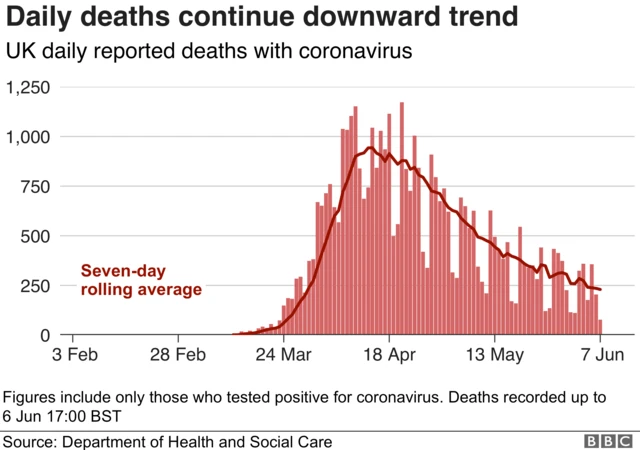
Riyaz Masroor
BBC Urdu
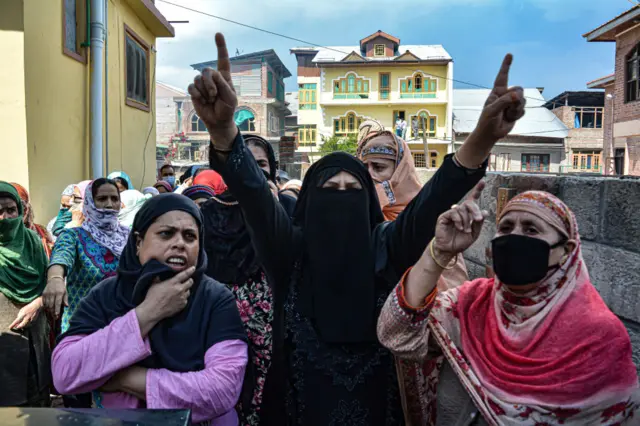 Image source, Getty Images
Image source, Getty ImagesSrinagar has seen protests against Indian security forces in recent weeks
Indian-administrated Kashmir reported more than 600 new cases in the past 24 hours, taking its tally over 4,000.
According to police records, more than 40 militants have been killed by Indian security forces since the lockdown began on 25 March.
The deaths have sparked protests, because officials have not been handing over the bodies to families, in order to prevent large funerals.
Locals have also been protesting because numerous homes - where militants often hide during the gunfights - have been damaged.
Officials say this has made it harder to enforce social distancing in the tense Muslim-majority valley, which has seen an armed insurgency against India since the late 1980s.
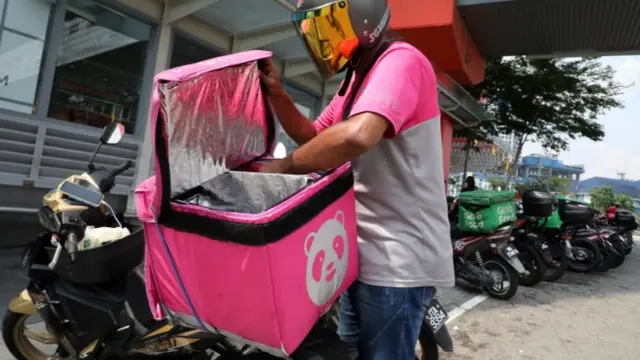 Image source, Reuters
Image source, ReutersAs lockdown leads to a surge in demand for food delivery, the Philippines House of Representatives will discuss a bill that would penalise people who cancel their orders.
In the Philippines, it is not uncommon for the delivery driver to pay for the food upfront before being reimbursed by the customer.
This means cancelling a confirmed order on a delivery platform could leave the driver with the bill - as well as wasting their time.
The draft law , externalbrought forward by one representative wants people to be heavily fined - and even put in jail.
Representative Alfredo Garbin told local media that "pranks on deliveries had become widespread nowadays".
 Image source, Getty Images
Image source, Getty Images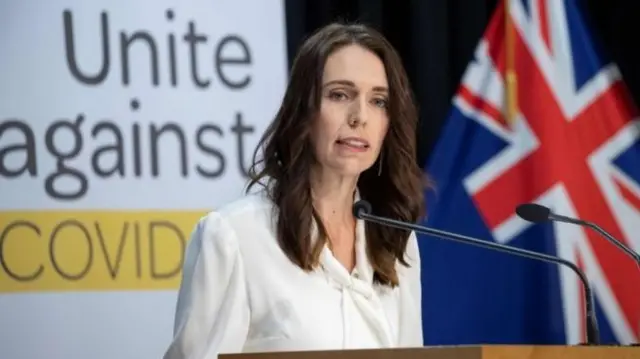 Image source, AFP / Getty
Image source, AFP / GettyNew Zealand has no virus cases, and has moved to its lowest alert level. But the Prime Minister, Jacinda Ardern, says the borders will stay closed - for now.
"Our borders remain our first line of defence as we aim not to import the virus," she said.
"Borders remain closed, our managed isolation at the border will continue and it will be as important as ever as we know this is a potential pathway.
"And that is key because we don't just want to move to level one, we want to stay there."
The country is in discussions with Australia - which has a low number of cases - about opening a "travel bubble" between the countries.
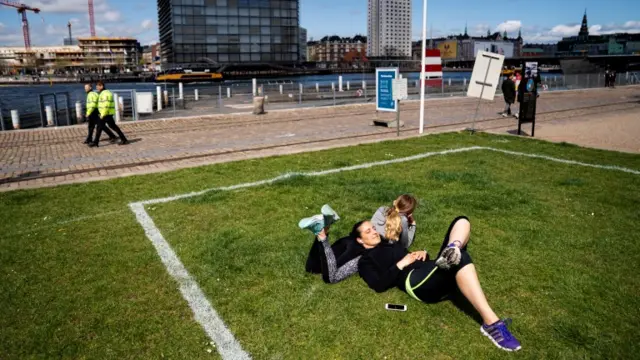 Image source, Reuters
Image source, ReutersDenmark has increased the limit on public gatherings from 10 to 50 people, the ministry of health said.
Denmark has recorded just over 12,000 confirmed infections. The deaths of 589 people have been linked to Covid-19.
On 15 June, the country will allow tourists from selected European countries to visit the country for tourism.
The short answer is no.
Although people travelling from the Republic of Ireland, the Channel Islands, and the Isle of Man are exempt from the 14-day quarantine, travellers must have been there for at least two weeks to avoid the UK self-isolation., external
Read answers to that, and other virus questions, here.
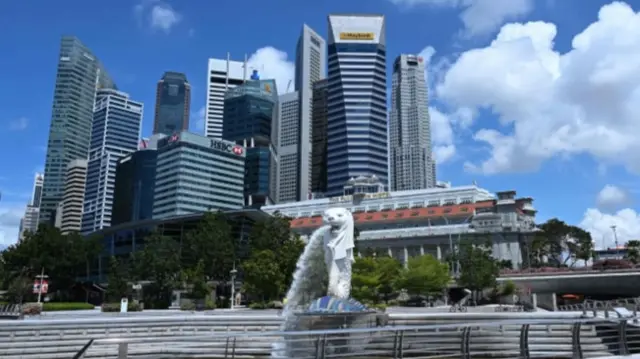 Image source, AFP
Image source, AFPIn Singapore, the prospect of having to wear tracking devices has triggered a wave of protests - socially distanced via an online petition.
Last Friday, the possibility of such a tracking device was discussed in the country's parliament - after a voluntary tracking app did not work as well as hoped.
Even though it wasn't clear whether the devices would be mandatory, the idea has led to an online petition which over the weekend amassed around 30,000 signatures.
“We – as free, independent, and lawful members of the public of Singapore – condemn the device’s implementation as blatant infringements upon our rights to privacy, personal space, and freedom of movement,” the online petition says.
Singapore is one of the worst-hit countries in the region with more than 37,000 infections - largely among the city state's foreign workers who live in packed dormitories that make social distancing very difficult.
There are a number of groups who are exempt, external, including:
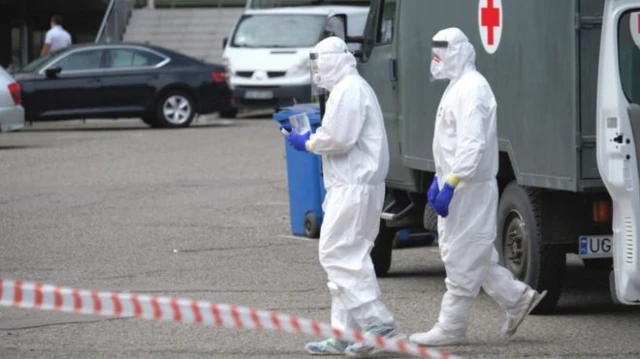 Image source, EPA
Image source, EPAA coal mine in Poland is behind a recent spike in the country's confirmed virus cases.
Over the weekend 1,151 new infections were recorded nationally. An outbreak among miners and their families at the Zofiowka colliery in southern Poland accounted for two-thirds of that figure.
Poland introduced a strict lockdown early in March, and has avoided the comparatively large numbers of deaths seen in Western Europe.
Overall, 1,157 people have died from Covid-19 - and 26,561 have been infected.
Under the new rules, everyone, including British nationals, arriving in the UK will have to self-isolate for 14 days beginning today (people arriving from the Republic of Ireland, the Channel Islands or the Isle of Man are exempt).
Some people are exempt, including freight workers and medical professionals who are providing essential care.
The travel industry has been critical of the rules - saying the two-week isolation period will deter visitors and put jobs at risk.
The rules do not apply to transit passengers - i.e. people flying into the UK who then fly out without leaving the airport or passing border control.
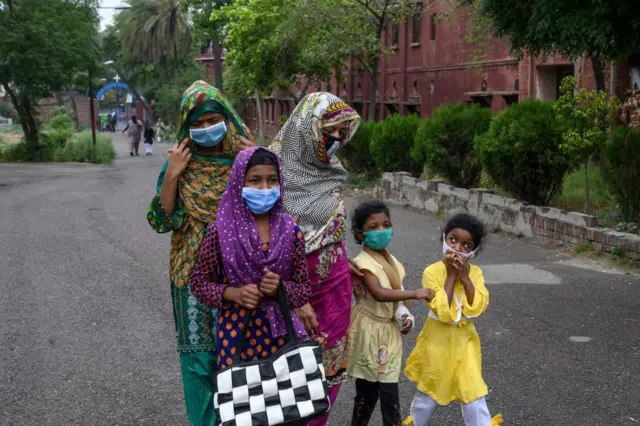 Image source, Getty Images
Image source, Getty ImagesInfections are spiking in Pakistan
Pakistan has recorded more than 5,000 new cases for the second day in a row, taking its national tally over the 100,000-mark.
With more than 37,000 cases each, Sindh and Punjab account for about three-quarters of the country's caseload.
Deaths too have been rising - sparking fears that hospitals could soon be overrun.
The country has reported 2,032 deaths so far, according to the latest local media reports.
The country lifted most of its lockdown restrictions last month - which some believe has contributed to the surge in cases.
David Zinn is a professional chalk artist who's on a mission to show that you don’t need fancy equipment to draw.
His work has appeared on subway platforms in Manhattan, village squares in Sweden and street corners in Taiwan.
The Toumba stadium in Thessaloniki, Greece, is known as one of the nosiest football stadiums in Europe.
The first two pictures were taken there in February, during a match against rivals Olympiakos. The second two were taken on Sunday, against the same opponents, after virus restrictions meant supporters were banned.
Despite the different atmospheres, the result was the same in each match - 1-0 to Olympiakos.
 Image source, Getty
Image source, Getty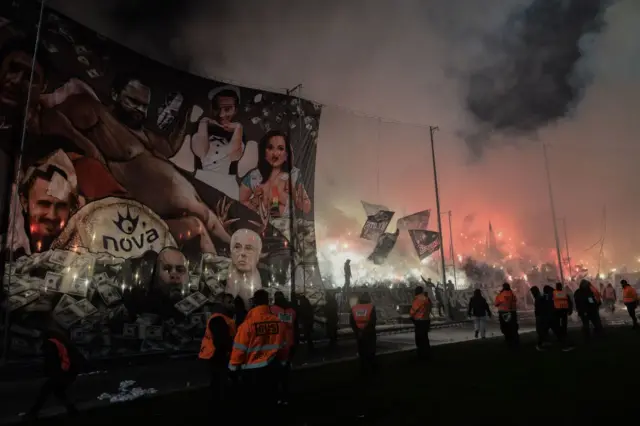 Image source, Getty Images
Image source, Getty Images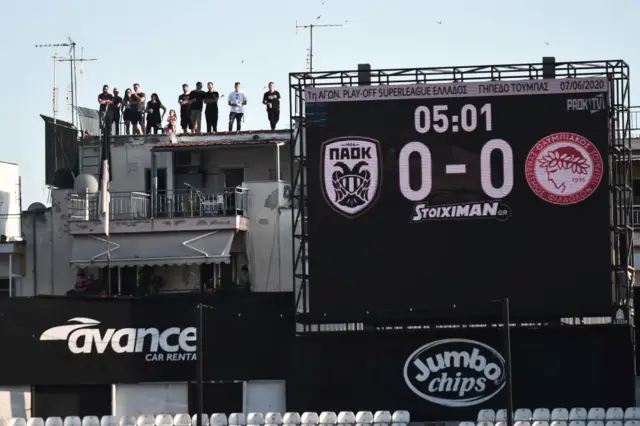 Image source, Getty Images
Image source, Getty Images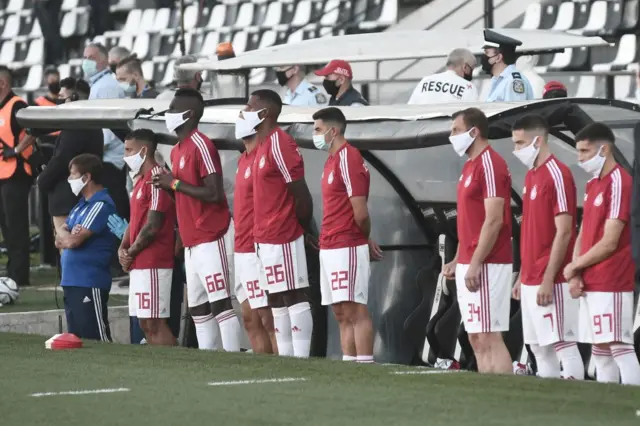 Image source, Gett
Image source, Gett"Tomorrow is a new day," says the governor of the country's worst-hit state.
Allow X content?
This article contains content provided by X. We ask for your permission before anything is loaded, as they may be using cookies and other technologies. You may want to read X’s cookie policy, external and privacy policy, external before accepting. To view this content choose ‘accept and continue’.
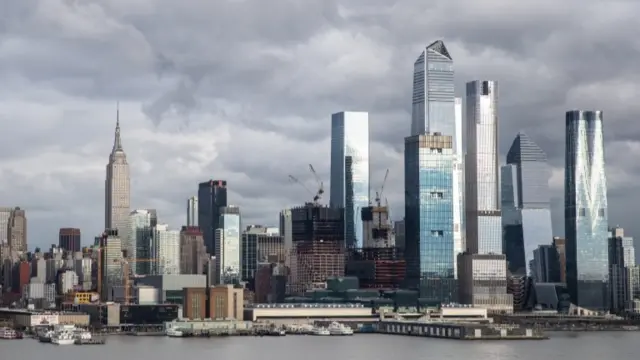 Image source, Reuters
Image source, ReutersNew York City is reopening non-essential businesses on Monday, as the US virus hotspot seeks to regain some normality.
The changes in "phase one" will mean that as many as 400,000 people can return to work in construction, manufacturing and retail. The subway railway system will pick up to 95% of pre-pandemic service.
Work places will have to observe certain safety measures and retail will start with kerb-side and in-store pickup only.
New York City has recorded more than 200,000 virus infections, and 21,844 deaths have been linked to Covid-19
More than 880,000 jobs disappeared during the pandemic and the losses in tax revenue mean the city is looking at a $9bn (£7bn) shortfall over the next year.
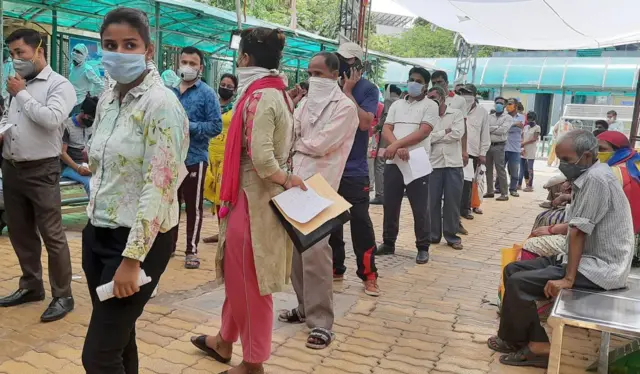 Image source, Getty Images
Image source, Getty ImagesIndia's capital, Delhi, has reserved many hospital beds for the city's residents as cases continue to rise.
The decision came on Sunday amid an increasing number of complaints from patients and their families struggling to find a spot in a hospital.
With more than 16,229 cases so far, Delhi is India's third worst-affected region. But it continues to reopen, with malls and places of worship opening today.
In the past week or so, people have taken to Twitter, often appealing to the Chief Minister Arvind Kejriwal or the health minister, Satyendar Jain, asking them to intervene to help them find a hospital bed urgently.
Allow X content?
This article contains content provided by X. We ask for your permission before anything is loaded, as they may be using cookies and other technologies. You may want to read X’s cookie policy, external and privacy policy, external before accepting. To view this content choose ‘accept and continue’.
People have also complained that the city's Covid-19 app, which is supposed to display the number of available hospital beds, does not reflect what is actually happening.
The government's order, however, does not apply to some of the city's biggest hospitals, which are run by the federal government.
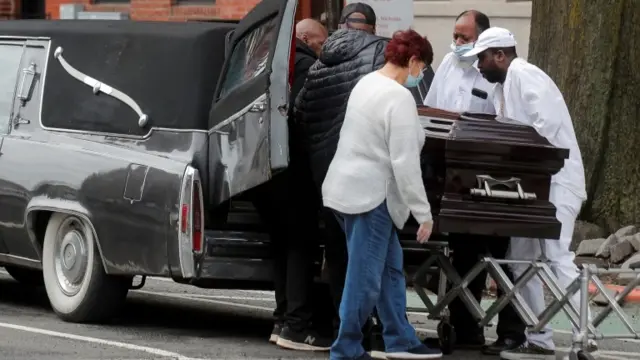 Image source, Reuters
Image source, ReutersIn the United States, 691 deaths have been linked to the virus over the past 24 hours. That's the lowest number in the past week.
At the peak of the pandemic, in the middle of April, the country had around 3,000 daily deaths.
Overall, there have been more than 110,000 deaths in the US and 1.9 million confirmed infections, according to data from the Johns Hopkins University.
India's western state of Maharashtra has recorded 85,975 cases so far - taking its tally beyond China's 84,191.
The state's capital city, Mumbai, accounts for most of that number - it has 48,774 confirmed cases.
India's financial hub is also one of the world's most crowded and densely populated cities. The virus has devastated the city's medical infrastructure, overwhelming its hospitals in weeks.
Maharashtra has also seen more deaths from Covid-19 than any other part of India - 2,969.
With more than 250,000 confirmed cases, India now has the fifth-highest number of cases in the world.
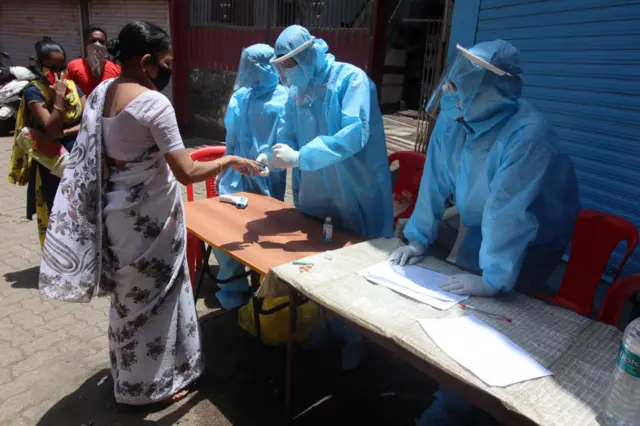 Image source, Getty Images
Image source, Getty ImagesMaharashtra is India's worst-hit state